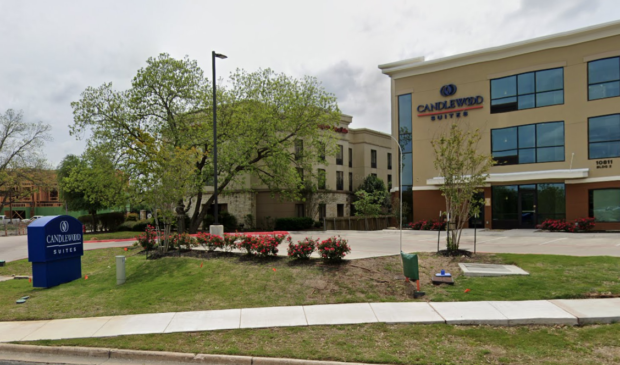About the Author
Chad Swiatecki is a 20-year journalist who relocated to Austin from his home state of Michigan in 2008. He most enjoys covering the intersection of arts, business and local/state politics. He has written for Rolling Stone, Spin, New York Daily News, Texas Monthly, Austin American-Statesman and many other regional and national outlets.
Newsletter Signup
The Austin Monitor thanks its sponsors. Become one.
Most Popular Stories
- Austin-Bergstrom International Airport announces new flight service while anticipating capacity cuts
- Austin Resource Recovery to formally amend cart collection rules
- City facing a $33 million deficit for 2026
- Austin ISD gets $41 million from the Education Department. What happens if the agency closes?
- Austin requires all homes to have working air conditioning
-
Discover News By District

Photo by Google Maps
Hotel industry rebound pinches city’s acquisition strategy to solve homelessness
Thursday, June 9, 2022 by Chad Swiatecki
The city may have to shift away from its strategy of converting hotels and motels into temporary and permanent supportive housing sites for the homeless, due to a rebound in the lodging market that has raised prices and cut down on available properties.
Tuesday’s City Council work session included a progress report from homeless strategy officer Dianna Grey on the city’s goal of providing housing for approximately 3,000 homeless residents in the next three years. The update notes that $422 million has been raised toward the estimated $515 million cost of achieving that goal, with $8 million in new money coming in recently from the state of Texas and private donors.
Grey said the Housing-Focused Encampment Assistance Link, or HEAL initiative, has thus far succeeded in dispersing and providing housing for the inhabitants of nine homeless encampments around the city, with 267 people assisted in finding shelter.
The biggest hindrance in expanding and accelerating the initiative is the limited number of bridge shelters available to the city, with one of the two currently in operation slated to be converted to permanent supportive housing, thus removing it as a temporary housing option for those in other encampments on HEAL’s list for future attention.
For more than a year, the city’s primary solution to providing shelter and permanent housing has been acquiring hotels or motels that can fairly quickly be converted for long-term living.
Michael Gates from the city’s real estate office said the hotel and lodging industry’s post-pandemic recovery has dramatically changed the market for purchasing those properties.
“The outlook for the Austin hotel industry is rosy at this point. Some of these operators were hanging on by their fingernails, but now the people who were glad to hear from us a year ago aren’t returning our phone calls,” he said. “It’s a confluence of lack of prospects and sticker shock. We are acting as a market actor, making unsolicited offers for them to sell to us, so the leverage is with them to demand a premium.”
Gates said he and others involved in the homelessness issue are continuing to search for possible acquisitions, while looking for other facilities such as nursing homes that could be converted to shelter use. A more distant and expensive option, he said, would be for the city to build new shelters in locations that meet its criteria, though doing so would cost far more than buying an existing hotel and would take a year or more to complete.
Council Member Ann Kitchen, who has been one of the strongest advocates for the HEAL initiative, said city land that is currently in consideration for affordable housing units should be considered for new shelter and permanent housing as well.
“I’m wondering what the solution is. Is there a different approach, or different kind of properties we need to look at? I’m operating under the premise that we need to acquire another shelter,” she said. “The HEAL initiative, while it’s just one piece of what we do, has been one of the more successful pieces to date by targeting high-risk locations. I’d like for us to be able to accelerate HEAL, but having another bridge shelter is a linchpin in the ability to expand.”
With the real estate market proving difficult and some parts of the city having few hotels or motels for possible acquisition, Council Member Natasha Harper-Madison said it is time for staff to begin exploring other options so progress on solving the city’s homelessness issue doesn’t stall out.
“I was convinced from the start that the hotel conversion strategy wasn’t going to be what sustained this. I really thought it was a long shot, frankly, and the more difficulty we got in various parts of town I was already looking for some other options. What are our other options? What’s not even remotely viable? And if this strategy is untenable I’d rather know than not.”
The Austin Monitor’s work is made possible by donations from the community. Though our reporting covers donors from time to time, we are careful to keep business and editorial efforts separate while maintaining transparency. A complete list of donors is available here, and our code of ethics is explained here.
You're a community leader
And we’re honored you look to us for serious, in-depth news. You know a strong community needs local and dedicated watchdog reporting. We’re here for you and that won’t change. Now will you take the powerful next step and support our nonprofit news organization?


